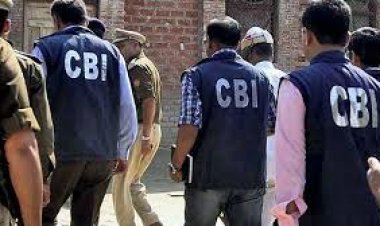Pollution Control Board Fines 16 Urban Bodies in Madhya Pradesh for Environmental Violations.
Pollution Crisis: Narmada River Suffers from Urban Negligence in Madhya Pradesh, Environmental Regulations Ignored as Sewage Contaminates Sacred Waterway

Bhopal – Despite stringent measures by the Madhya Pradesh government, the National Green Tribunal (NGT), and the Pollution Control Board, the Narmada River, known as the lifeline of the state, continues to be polluted by untreated sewage. This situation highlights the failure of government initiatives aimed at protecting the river, which are largely confined to paperwork.
Recent findings reveal that 16 urban bodies across 10 districts have been fined a total of ₹79.44 crore for environmental damage due to poor sewage management. The absence of functional sewage treatment plants (STPs) has resulted in the discharge of 1,369 million liters of sewage daily into the river. Notably, a planned 21 MLD STP by the Madhya Pradesh Urban Infrastructure Development Company (MPUIDC), initiated in 2017-18, remains unconstructed, allowing direct pollution from household waste.
The Gujarat High Court, responding to a petition by activist Kirti Kumar Sadashiv Bhatt, has held Madhya Pradesh accountable for the rising pollution levels in the Narmada. During hearings, Anand Singh, Chief Engineer of the Madhya Pradesh Urban Development Company, assured that existing STPs are operational, while efforts to complete the remaining facilities are underway, with contractor penalties being enforced for delays.
In particular, Narmadapuram has faced the largest penalty of ₹8.46 crore due to stagnant improvements in waste management over the past two years. Other urban bodies, including Dhar, Amarkantak, and Jabalpur, have also incurred fines, underscoring a widespread neglect of environmental regulations.
The NGT had previously imposed a ₹3,000 crore fine on the state government for similar negligence, which was suspended after a six-month extension was granted, with no significant progress made since. The Chief Secretary indicated that the state has allocated ₹9,688 crore for sewage management, with ₹2,731 crore sourced from the central government.
The situation calls for urgent attention as the continued neglect threatens both public health and the ecological balance of one of India’s most vital rivers.

 Pramod
Pramod 










